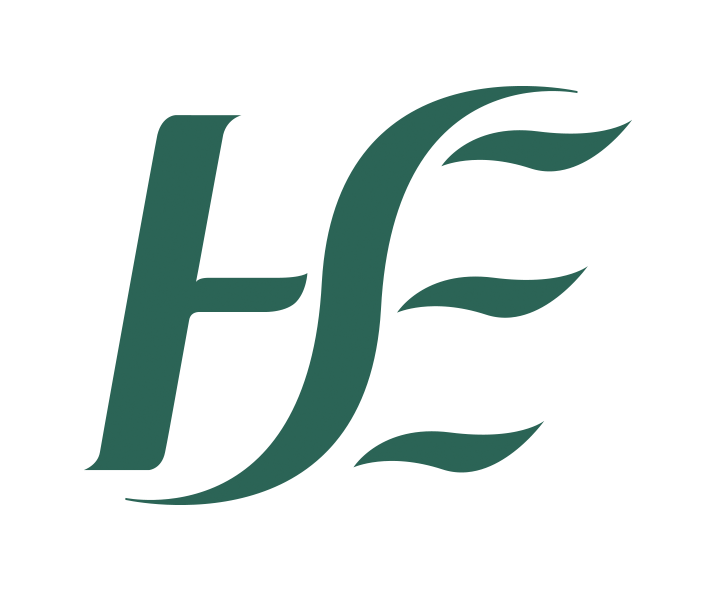
History & Development
The ESTHER initiative was established in 2002 by the French Ministry for Foreign Affairs and the Ministry of Health, to address the emergency presented by HIV andAIDS in developing countries and to address inequalities in access to treatment and care for people living with HIV.
The ESTHER initiative acquired a European dimension soon after creating the GIP ESTHER in March 2002. An initial core of four countries: France, Italy, Luxembourg and Spain, agreed in April 2002 to jointly develop a ‘Network for Therapeutic Solidarity in Hospitals against AIDS’ (Ensemble pour une solidarité thérapeutique hospitalière en réseau, ESTHER) to strengthen the skills and capacities of health structures in less-developed countries, to assist people living with HIV/AIDS. The members agreed to set up a European Secretariat at GIP ESTHER. Subsequently, the GIP ESTHER hosted the European ESTHER Alliance Secretariat and supported its development.
In March 2004, four more countries ratified the same declaration (Austria, Belgium, Germany and Portugal). Then, Greece joined in September 2006, Norway in November 2008, Switzerland in November 2011 and Ireland in February 2012. In October 2012, the United Kingdom joined the Alliance with observer status, represented by the Tropical Health and Education Trust (THET) and in 2014 a Southern Countries Representative joined the Board. In mid-2017, the Alliance widened its membership from a European to a global level and was rebranded as the ESTHER Alliance for Global Health Partnerships.
Governance
The ESTHER Alliance for Global Health Partnerships Board was the committee with ultimate decision-making authority for the Alliance. Each member was responsible for ensuring that they have appropriate national authority when participating in decision making at the ESTHER Alliance Board level. Decision-making within the group was based on consensus or majority at the discretion of the Board; one country one vote.
The Chair of the Board rotated every two years. There was also a Vice-Chair position that supported the work of the Chair and represented the Board when the Chair was unavailable. The Chair worked closely with the ESTHER Alliance secretariat. The secretariat was responsible for the leadership, setting the agenda of board meetings, as well as managing workload and resourcing issues.
Membership
Over the years, the Alliance was joined and engaged with 13 European countries on different levels. The list of these countries is as follows:
Austria
Joined the Alliance in 2004 and was represented by the Directorate General for Cooperation and Development and the Ministry for Foreign Affairs.
Belgium
Joined in March 2004 through the Directorate General for Cooperation and Development and Ministry for Cooperation and Development
France
France established the ESTHER initiative in 2002 to face the emergency represented by HIV/AIDS in developing countries and to counter the clear inequalities between the global North and South in access to treatment and care for people living with HIV. The Ministry for Foreign Affairs and the Ministry of Health in France set up in 2002 the GIP ESTHER, a public interest group, as a governmental technical and cooperation agency, to implement and manage the initiative.
In 2014 the French Government decided to merge the main French international technical and cooperation implementers, including the GIP ESTHER and created a new Agency, Expertise France.
Germany
Germany joined the ESTHER Alliance in March 2004. The Deutsche Gesellschaft für Internationale Zusammenarbeit (GIZ) GmbH coordinates the ESTHER Germany programme on behalf of the German Federal Ministry for Economic Cooperation and Development (BMZ) through the ESTHER Germany Secretariat. ESTHER Germany held the ESTHER Alliance Secretariat for a few years until 2019 and held the Chair of ESTHER Alliance between October 2019 until the closing of the Alliance by 31 December 2021.
Greece
Joined the ESTHER Alliance in September 2006 and was represented by the Hellenic Center for Disease Control and the Hellenic AID in the Greek Cooperation Agency.
Ireland
Ireland joined the ESTHER Alliance in February 2012. The Health Service Executive (HSE) in Ireland oversaw ESTHER Ireland, and the programme was implemented by the Irish Global Health Network (IGHN). Ireland hosted the Chair of the Alliance between 2015 and October 2019 and hosted the ESTHER Alliance secretariat from October 2019 until the closure of the Alliance in December 2021.
Italy
Joined the Alliance in April 2002, by the l’Istituto Superiore di Sanita of the Ministry of Health.
Luxembourg
Luxembourg joined the ESTHER Alliance in March 2002 by the Directorate General for Cooperation and Development and the Ministry for Foreign Affairs and Immigration.
Norway
Norway’s ESTHER programme was established when Norway joined the European ESTHER Alliance in 2009. The program was managed by FK Norway, which was a government body under the Ministry of Foreign Affairs. Norway was represented in the Esther Alliance board by Norad (Norwegian Agency for Development Cooperation), and FK Norway alternately. FK Norway is superseded by Norec.
Portugal
Portugal joined the ESTHER Alliance by the National Coordination for HIV/AIDS of the Ministry of Health, and Instituto Português de Apoio ao Desenvolvimento (IPAD) of the Ministry of Foreign Affairs.
Spain
The Ministry of Health in Spain implemented the ESTHER Spain programme, and it joined the Alliance in March 2002. ESTHER Spain contributes to the efforts to strengthen the human resources in health in the Latin America region. The focus of the programme is to create a network of health professionals working in HIV service delivery at second and third-level hospitals.
Switzerland
Switzerland joined the Alliance in November 2011. The Institute of Social and Preventive Medicine (ISPM) of the University of Bern hosted the ESTHER Switzerland Secretariat and implemented the ESTHER Switzerland programme on behalf of the Swiss Agency for Development and Cooperation (SDC).
The United Kingdom
The United Kingdom, represented by THET Partnerships for Global Health, joined the ESTHER Alliance in October 2012. THET has supported Health Partnerships between the UK and overseas health institutions for over thirty years.
Health Partnership Approach
Health Partnerships are long-term relationships between health institutions in high-Income countries and low- and middle-income countries. Health partnerships strengthen the capacity of the health workforce and institutions, to provide quality health services for people in low and middle-income countries. These partnerships are built on mutual respect and reciprocal learning.
Focus Areas
ESTHER Alliance activities were focused on three key areas:
Evidence and Effectiveness
Set standards for and generate evidence on the effectiveness of institutional health partnerships.
Collaboration and Coordination
Members, strategic partners and partner countries work together to improve the reach and effectiveness of institutional health partnerships.
Advocacy and Communications
Promote the partnership model as an effective mode of development cooperation in health.
New Direction in 2020
In 2019, the European ESTHER Alliance was rebranded to become the ESTHER Alliance for Global Health Partnerships and began the process of developing a new strategic framework for 2021-2025. Under the new strategy, the Alliance aimed at transitioning into a Knowledge Hub for health partnerships. The focus was to bring together and disseminate widely the substantial knowledge resources on health partnerships available through member organisations. The ESTHER Alliance also aimed to facilitate sharing of experiences and knowledge from partnership projects working across diverse health and medical areas.
Response to the COVID-19 Pandemic
The COVID-19 pandemic provided the impetus to the Alliance to start exercising its new knowledge hub function. From March 2020, the Alliance engaged actively with the stakeholders in collecting and collating COVID-19 knowledge, producing regular newsletters and running a COVID-19 webinar series in partnership with the Irish Global Health Network. In addition, the ESTHER Alliance partnered with THET to organise the successful online conference ‘Partnerships at a Time of COVID’ in 2020 and 2021. The conference which provided a space for health partnerships to share their experience with the pandemic and express solidarity.
The Closure
The ESTHER Alliance was going through a transitioning phase in 2020 and 2021 to develop a the new strategic direction. At the same time, the ESTHER Alliance was becoming more detached from official Government programmes, which opened up the opportunity for a broader alliance with non-governmental organisations and other stakeholders. Furthermore, the COVID-19 pandemic impacted the dynamics and work of the health partnerships and challenged ESTHER Alliance members to rethink the North-South institutional partnership approach and model. The global pandemic response exposed stark inequities in health care and called for a new paradigm for technical cooperation based on more equal ways of cooperating between high-income countries and low- and middle-income countries (LMICs). The partnership approach was deemed more important than ever, and the need emerged to strengthen the global approach to facilitating and supporting institutional partnerships.
Due to these factors, the ESTHER Alliance board decided to end the ESTHER Alliance by 31 December 2021 to pave the way in 2022 to explore a new networking model that is global and inclusive to all individuals and organisations interested and engaged in health partnerships. The aim was to develop a new network that is not Europe-based but embraces a truly global approach with greater participation and leadership from LMICs. Although the ESTHER Alliance operations ended by December 2021, the Member countries of the Alliance remained committed to the partnership approach and will continue to facilitate partnerships and projects through the relevant organisations in their countries.
The ESTHER Alliance for Global Health Partnerships was a network of Government and allied organisations that promoted institutional health partnerships between high-income countries and low and middle-income countries. This health partnership approach allowed practising health professionals to work with their peers as an effective mode of development cooperation in health.
|
Name |
ESTHER Alliance for Global Health Partnerships |
|
Established |
2002 |
|
Type |
Alliance for governmental and non-governmental organisations |
|
Status |
Inactive |
|
Member States |
Austria Belgium France Germany Greece Ireland Italy Luxembourg Norway Portugal Spain Switzerland The United Kingdom
|
|
Closure |
31 December 2021 |

